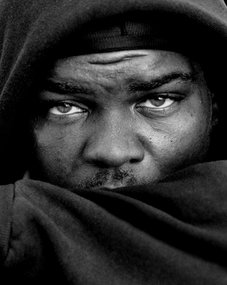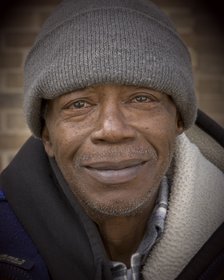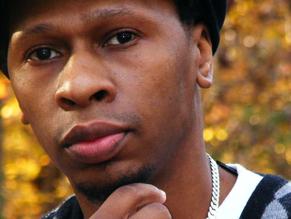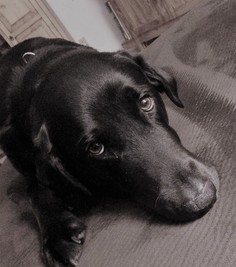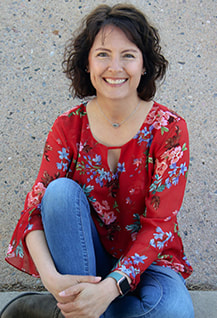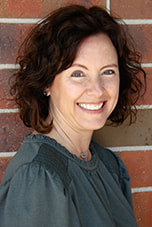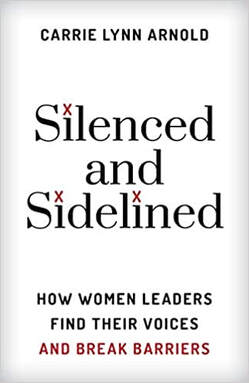|
Last summer my friend Tracy wrote a blog post about her life, and it ended up changing mine. She strayed from her usual corporate writing and wrote about being a black woman, married to a black man, raising a black son. A picture of her tightly hugging her family leaps from the page. “My world is filled with African American men, young and old, corporate and working class, executives and cleaning staff. Mustached, clean-shaven, suits, jeans, erudite, streetwise, even some in earrings. They are my family, the husbands, brothers, and sons of my 'Momtourage' mother’s group, school chums, Boy Scout Troop 242, church members and friends. My world transforms into a cornucopia of brown hues when I leave the office. Every one of them are loved and valued.” Tracy and I have a lot in common. We are leadership coaches, consultants, alumni, moms, wives, church-goers, and we are both passionate – sometimes finishing each other’s sentences when it comes to facilitation. However, she deals with something every day that I do not experience. Daily she prays a specific prayer for her black husband and son. She prays, “that a chance encounter with an officer doesn't result in me living without them.” Click here to read her entire article A New Normal. Her post was shared with hundreds of coaches, and she caused many of us to awaken from a light slumber that many of us agreed we had fallen. What is happening to our black men? How has racism shifted in America? Have we fallen even further behind pre-Civil Rights Movements? What is it like to be black today? Do I, as a white person, understand their lived experience? These were several of the questions we began to ask, and I was only able to answer one with confidence. No! I, as a white woman, do not understand the lived experience of being black. Acknowledging this was part of my shift last summer and I wanted to understand. I want to be a passionate listener with a voice of solidarity and change. I do not want to be a blind and slumbering white women who suddenly awakens after decades and feigns confusion on how racism has gotten so bad in America. Thankfully, I was not alone in my declaration of not knowing. Over 100 coaches stepped forward and said, “let’s talk.” As a group, we are some of the best-trained coaches in the world. We are working with prestigious leaders in private and public sectors; we partner with leaders on change strategies to engage their employees and move their organizations to stability and sustainable practices. We delve into adult development theories and coach from a place of exquisite art, grounded theory, and evidence-based practice. Given the access we have to our clients, organizations, communities, and government - what on earth was keeping us from talking about race? And so, we began. For the past year, we have had rich, deep, painful, and real conversations about the black and white dynamic in America. We have sat in living rooms with our black brothers and sisters, and we have connected virtually with colleagues all over the country. After a year of small group discussion and ferocious reading, I still do not fully understand the lived experience of what it means to be black in America, but I’m becoming more and more aware. Recently, I was talking to tall, broad, older, black man in DC who told me that fifty years ago he knew exactly where he could walk, stand, or sit. He understood what areas of town never to enter. Today, the rules are different – there are none. What it means to be in the wrong place at the wrong time is uncertain and no longer predictable. He said it feels much harder today than any time in his life. These are not conversations I was engaged in before last summer. And now, I cannot seem to stop myself from taking about race or asking questions about the black experience. Not long ago I asked a black client of mine why black men choose to marry white women. He leaned forward and said, “I do not think anyone has ever asked me that question.” We then had a great conversation, and he shared his thoughts about interrracial marriage, and I learned a lot. The beauty is that we talked (really talked) and the conversation left us both in different places of willingness to name, admit, voice, own, accept, and honor. One year ago, when we decided as coaches to begin this journey, we created the following charter statement: As members of the Georgetown and wider coaching community, we believe it is our foundational and essential practice to engage in and facilitate dialogue where we notice pain and misunderstanding. We choose not to be silent but to use our voices, abilities, and passion to encourage awareness, healing, mutual understanding, appreciation, and respect for all Especially with respect to race at this time in America, particularly the black/white dynamic and our longing for racial equality As is true with anything in life, once you become conscious and awake to something, you cannot accidentally slip back into unconsciousness – If you do, it is nothing more than a choice to ignore. I am conscious of race conversations that still need to be explored. I am conscious of my privilege. I am conscious of the fact that people long for a witness to their life. Each story is an opportunity to understand a unique person sitting in front of me with eyes like mine but with a different pigment in their skin that makes me look more pink than white. It is hard not to get drawn into a smile that lights up an entire face and not be moved by a laugh that shakes me to my core, all while trying to make sense of this gestalt issue that we call race. My journey has just begun, and I imagine it will end at the grave. I look forward to the many future conversations that will keep me from ignorance and slumber.
How normal is it for you to talk about race with your family, friends, or colleagues? See below for a great list of books that have been part of my waking up journey. 1. Coates, T.-N. (2015). Between the world and me (First edition. ed.). New York, NY: Spiegel & Grau. 2. Halstead, J. (2016). The Real Reason White People Say ‘All Lives Matter’ http://www.huffingtonpost.com/john-halstead/dear-fellow-white-people-_b_11109842.html 3. Irving, D. (2014). Waking up White: And finding myself in the story of race (1st edition. ed.). Cambridge, MA: Elephant Room Press. 4. Washington, B. T. (1963). Up from slavery, an autobiography. Garden City, NY: Doubleday. 5. Wilkerson, I., & Miles, R. (2011). The warmth of other suns: The epic story of America's great migration. Grand Haven, MI: Brilliance Audio. Perhaps it is the extended break that accompanies the holiday season, the weather, a long-lasting food coma, or a family hangover (I heard recently that this is a thing). So far–2017 feels sluggish. It is possible the political antics of 2016 are still creating a fuzzy buzz that keeps clarity in a marginalized place in my brain. How will our new president-elect lead? How will the government respond to the environmental, economic and foreign affair issues that plague our country and cause me to worry? Along with this global uncertainty is the general ambiguity of a new year? What should I focus on for health and wellness? Like everyone else, I’m now older and with age come changes in responsibility to maintain my body. Then there is career. How will my practice shift and do I want or need those changes? I have never been a fan of New Year resolutions because like many, I struggle to maintain them. However, I have been quite disciplined in several categories. In 2016 I finished a Ph.D. which required an enormous level of cognitive discipline. I have managed to be gluten-free for six-weeks. I realize that is not very long… but that is a long time without Pillsbury Grand Biscuits. I also succeeded in shunning my black lab for two days after he snarled at a guest in our home. We can do whatever we set our minds to but sometimes I am not sure what my mind needs, and thus, I settle into a sluggish behavior where decision making is delayed, and a lack of energy keeps me moving slow, waiting for something or someone to prompt me to take a definitive next step. What has assisted me manage the sluggish struggle are other people. When I get an email from a colleague asking me to go to lunch to brainstorm ideas – I get motivated. When a client contacts me and says, I need to resume coaching, I take action. I have decided not to let any message or request go answered. I respond with a yes, even when my mind wants to stay lazy and put things off. When all else fails, taking some type of action helps.
I know I’m not the only sluggish fallible human being on the planet. Even as I write this transparent blog, I am wondering about the person who most needs to read this. As leaders, we have to be for others what we need for ourselves. Who have you asked to lunch or coffee in January? Who do you need to connect with that you have not done so in a while because the holidays were a good excuse? Someone besides me is feeling sluggish, and you are the person they need to hear from to move them out of their inertia. Do not wait – reach out today! For my fellow sluggish readers, say yes to the next request. |
Carrie Arnold, PhD, MCC, BCCIn no particular order: Author | Dog mom | Speaker | Reader | Mom to human offspring | Wife | Lover of Learning | Leadership coach & consultant, The Willow Group | Faculty for Evidence-Based Coaching at Fielding Graduate University
�
Categories
All
|
The Willow GroupCarrie Arnold, PhD, MCC
|
Silenced and Sidelined: How Women Leaders Find Their Voices and Break Barriers
|
|
© 2020 The Willow Group, LLC


